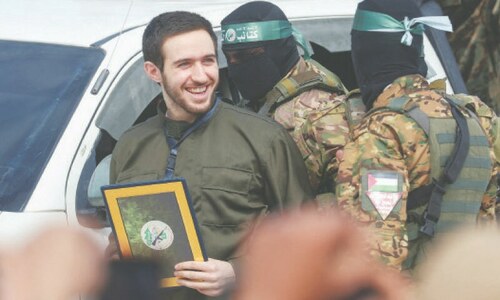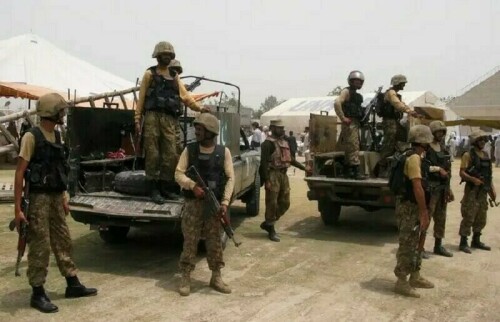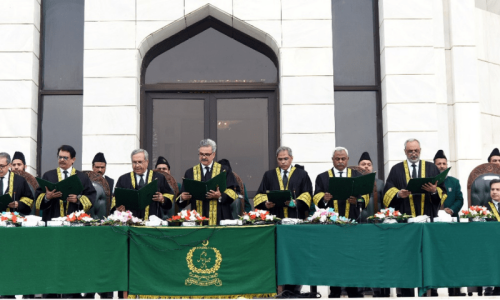KARACHI: The Taliban and representatives of the Afghan government have restarted secret talks in Qatar, sources within the insurgency and the Kabul government have told The Guardian.
Among those present at the meetings held in September and October was Mullah Abdul Manan Akhund, brother of Mullah Omar, the former Taliban chief who led the movement from its earliest days until his death in 2013.
The two rounds of talks are the first known negotiations to have taken place since a Pakistan-brokered process broke down following the death in a US drone strike of Omar’s successor, Mullah Akhtar Mansour.
Doha has been a centre for Taliban diplomacy since the movement was granted permission to set up an office in the Qatari capital in 2013, although that initiative became one of the many attempts to start a peace process that ultimately came to nothing following complaints from the Afghan government.
Mullah Omar’s son, Mohammad Yaqoob, was expected to soon join the Doha group, a Taliban source said, in a move that would further bolster the authority of the office.
No Pakistani official took part in either the October or September meetings, according to a member of the Taliban’s leadership council, the ‘Quetta Shura’. He said Islamabad had lost much of its traditional influence over the movement it had been associated with since it rose to power in Afghanistan in the mid-1990s.
But according to the Taliban official, a senior US diplomat was present in the Qatar meetings. The United States embassy in Afghanistan declined to comment on the claim. The Taliban official said the first meeting in early September “went positively and was held in a trouble-free atmosphere” in which Mullah Akhund sat face to face with Mohammed Masoom Stanekzai, Afghanistan’s intelligence chief.
A second meeting took place in early October, despite continued fighting between government and insurgent forces.
Although an Afghan government official confirmed that Mr Stanekzai had made at least one recent trip to Doha, both President Ashraf Ghani’s spokesman and Ismail Qasemiyar, a senior member of the High Peace Council charged with overseeing peace talks, denied any knowledge of the meetings.
The Taliban council member said the presence of a US official helped make the meeting possible given the group’s longstanding reluctance to meet directly with the Afghan government, which it publicly lambastes as a “puppet regime”.
“Taliban believe the Afghan issue is a dispute with both the US and Afghan governments,” he said. “If these three sides can hold preliminary meetings it could create a strong base for further positive developments.”
He said Mullah Akhund was “specially dispatched by the Taliban leadership council” to Doha to underline the importance it attached to the talks.
“His presence made the talks more notable and shows that both the military and political Taliban are on the same page,” he said.
The Taliban movement has long been divided on the wisdom of peace talks between hawkish commanders fighting in Afghanistan and some members of its leadership reportedly based in Pakistan who have favoured negotiations.
The last known meeting between the two sides took place in Murree in July last year, where US and Pakistani officials were also present.
But Pakistan has been unable to orchestrate any further meetings following the death of Mansour.
A Pakistan-led “quadrilateral” process, involving Afghanistan, the US and China, that was intended to presage fresh talks has also petered out.
A close aide to President Ghani said both the Taliban and the Afghan government had become deeply disillusioned with Pakistan.
Published in Dawn, October 19th, 2016













































